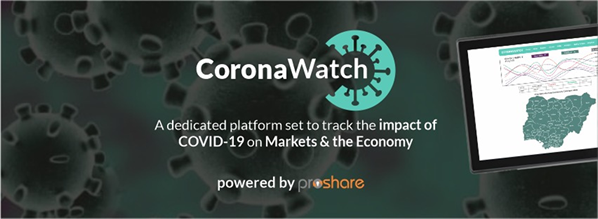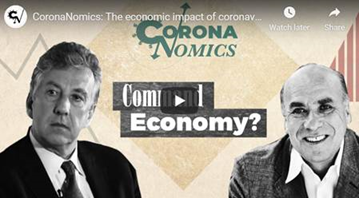Friday, May 1, 2020 / 08:17AM / By NourielROUBINI, Project Syndicate / Header Image Credit: iStock
Whilethere is never a good time for a pandemic, the COVID-19 crisis has arrived at aparticularly bad moment for the global economy. The world has long beendrifting into a perfect storm of financial, political, socioeconomic, andenvironmental risks, all of which are now growing even more acute.
After the2007-09 financial crisis, the imbalances and risks pervading the global economywere exacerbated by policy mistakes. So, rather than address the structuralproblems that the financial collapse and ensuing recession revealed,governments mostly kicked the can down the road, creating major downside risks thatmade another crisis inevitable. And now that it has arrived, the risks aregrowing even more acute. Unfortunately, even if the Greater Recession leads toa lackluster U-shaped recovery this year, an L-shaped "Greater Depression"will follow later in this decade, owing to ten ominous and risky trends.
The first trendconcerns deficits and their corollary risks: debts and defaults. The policyresponse to the COVID-19 crisis entails a massive increase in fiscal deficits -on the order of 10% of GDP or more - at a time when public debt levels in manycountries were already high, if not unsustainable.
Worse, theloss of income for many households and firms means that private-sector debtlevels will become unsustainable, too, potentially leading to mass defaults andbankruptcies. Together with soaring levels of public debt, this all but ensuresa more anemic recovery than the one that followed the Great Recession a decadeago.
A second factoris the demographic time bomb in advanced economies. The COVID-19 crisis showsthat much more public spending must be allocated to health systems, and thatuniversal health care and other relevant public goods are necessities, notluxuries. Yet, because most developed countries have aging societies, fundingsuch outlays in the future will make the implicit debts from today's unfundedhealth-care and social-security systems even larger.
A third issueis the growing risk of deflation. In addition to causing a deep recession, thecrisis is also creating a massive slack in goods (unused machines and capacity)and labor markets (mass unemployment), as well as driving a price collapse incommodities such as oil and industrial metals. That makes debt deflation likely,increasing the risk of insolvency.
A fourth (related)factor will be currency debasement. As central banks try to fight deflation andhead off the risk of surging interest rates (following from the massive debtbuild-up), monetary policies will become even more unconventional andfar-reaching. In the short run, governments will need to run monetized fiscaldeficits to avoid depression and deflation. Yet, over time, the permanentnegative supply shocks from accelerated de-globalization and renewed protectionismwill make stagflation all but inevitable.
A fifth issueis the broader digital disruption of the economy. With millions of peoplelosing their jobs or working and earning less, the income and wealth gaps ofthe twenty-first-century economy will widen further. To guard against futuresupply-chain shocks, companies in advanced economies will re-shore productionfrom low-cost regions to higher-cost domestic markets. But rather than helpingworkers at home, this trend will accelerate the pace of automation, puttingdownward pressure on wages and further fanning the flames of populism,nationalism, and xenophobia.
This pointsto the sixth major factor: de-globalization. The pandemic is accelerating trendstoward balkanization and fragmentation that were already well underway. TheUnited States and China will decouple faster, and most countries will respondby adopting still more protectionist policies to shield domestic firms andworkers from global disruptions. The post-pandemic world will be marked bytighter restrictions on the movement of goods, services, capital, labor,technology, data, and information. This is already happening in thepharmaceutical, medical-equipment, and food sectors, where governments areimposing export restrictions and other protectionist measures in response tothe crisis.
The backlashagainst democracy will reinforce this trend. Populist leaders often benefitfrom economic weakness, mass unemployment, and rising inequality. Underconditions of heightened economic insecurity, there will be a strong impulse toscapegoat foreigners for the crisis. Blue-collar workers and broad cohorts ofthe middle class will become more susceptible to populist rhetoric,particularly proposals to restrict migration and trade.
This pointsto an eighth factor:the geostrategic standoff between the US and China. With the Trumpadministration making every effort to blame China for the pandemic, ChinesePresident Xi Jinping's regime will double down on its claim that the US isconspiring to prevent China's peaceful rise. The Sino-American decouplingin trade, technology, investment, data, and monetary arrangements willintensify.
Worse, thisdiplomatic breakup will set the stage for a new cold war between the US and itsrivals - not just China, but also Russia, Iran, and North Korea. With a USpresidential election approaching, there is every reason to expect an upsurgein clandestinecyber warfare, potentially leading even to conventional military clashes.And because technology is the key weapon in the fight for control of theindustries of the future and in combating pandemics, the US private tech sectorwill become increasingly integrated into the national-security-industrialcomplex.
A final riskthat cannot be ignored is environmental disruption, which, as the COVID-19crisis has shown, can wreak far more economic havoc than a financial crisis.Recurring epidemics (HIV since the 1980s, SARS in 2003, H1N1 in 2009, MERS in2011, Ebola in 2014-16) are, like climate change, essentially man-madedisasters, born of poor health and sanitary standards, the abuse of naturalsystems, and the growing interconnectivity of a globalized world. Pandemics andthe many morbid symptoms of climate change will become more frequent, severe,and costly in the years ahead.
These tenrisks, already looming large before COVID-19 struck, now threaten to fuel aperfect storm that sweeps the entire global economy into a decade of despair.By the 2030s, technology and more competent political leadership may be able toreduce, resolve, or minimize many of these problems, giving rise to a moreinclusive, cooperative, and stable international order. But any happy endingassumes that we find a way to survive the coming Greater Depression.
Credits
The post TheComing Greater Depression of the 2020s first appeared in ProjectSyndicateon Tuesday, April 28, 2020.
About the Author
Nouriel Roubini,Professor of Economics at New York University's Stern School of Business andChairman of Roubini Macro Associates, was Senior Economist for International Affairs in theWhite House's Council of Economic Advisers during the Clinton Administration.He has worked for the International Monetary Fund, the US Federal Reserve, andthe World Bank. Nouriel has been writing for PS since 2007 with 140 commentaries and 3 videos &podcasts. His website is NourielRoubini.com.
Related News -
- Of Swans and Free Markets Capitalism - Lessons for Nigeria
- Can the Nigerian Economy Survive the Virus?
- Nigeria's Economy After Oil: How Should We Prepare? - Bode Agusto
- Roadmap to Rebooting Nigeria's Economy from COVID-19 - Soji APAMPA
- Can Africa Afford COVID-19 Lockdowns? - Chukwuma Soludo
- Of Q1'20 Economic Output and GDP Forecasts - Lessons from China
- It's Time to Build - OpEd
- The World After COVID-19: Mark Carney on How the Economy Must Yield to Human Values
- What Would the World Look Like after Coronavirus: Economically, Politically and Socially?
 Lagos, NG • GMT +1
Lagos, NG • GMT +1











 1483 views
1483 views












 Sponsored Ad
Sponsored Ad
 Advertise with Us
Advertise with Us









